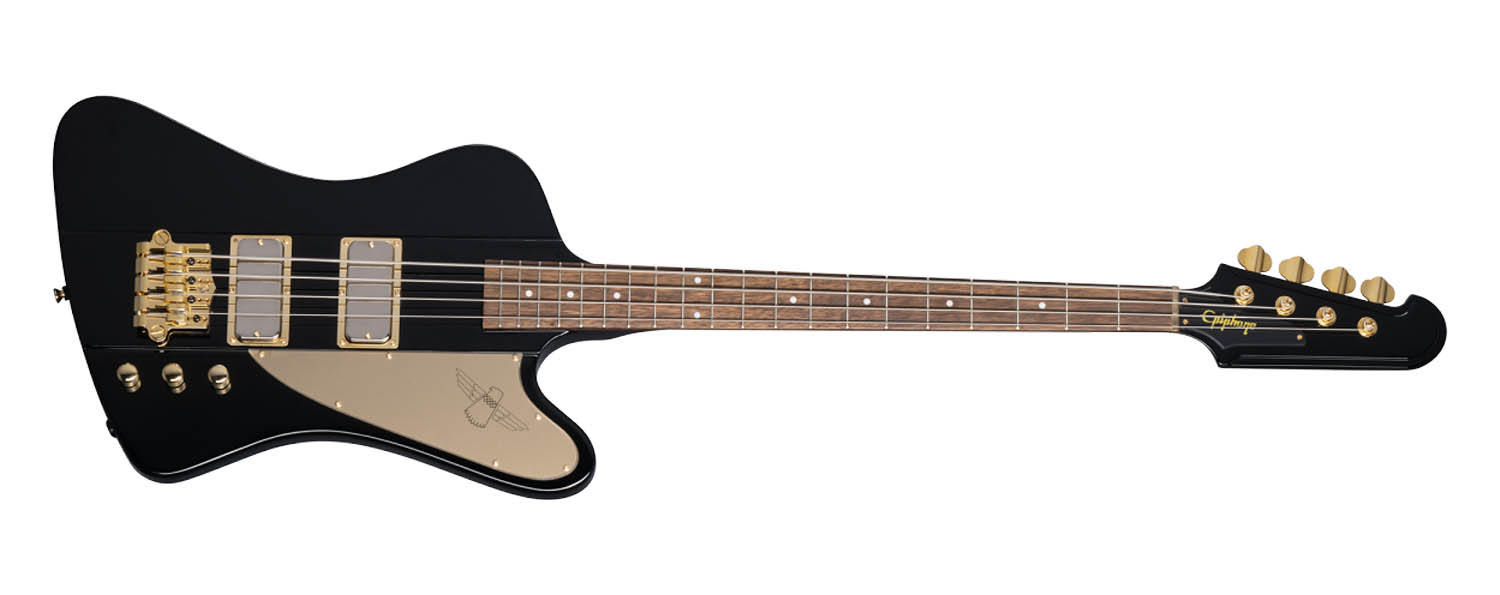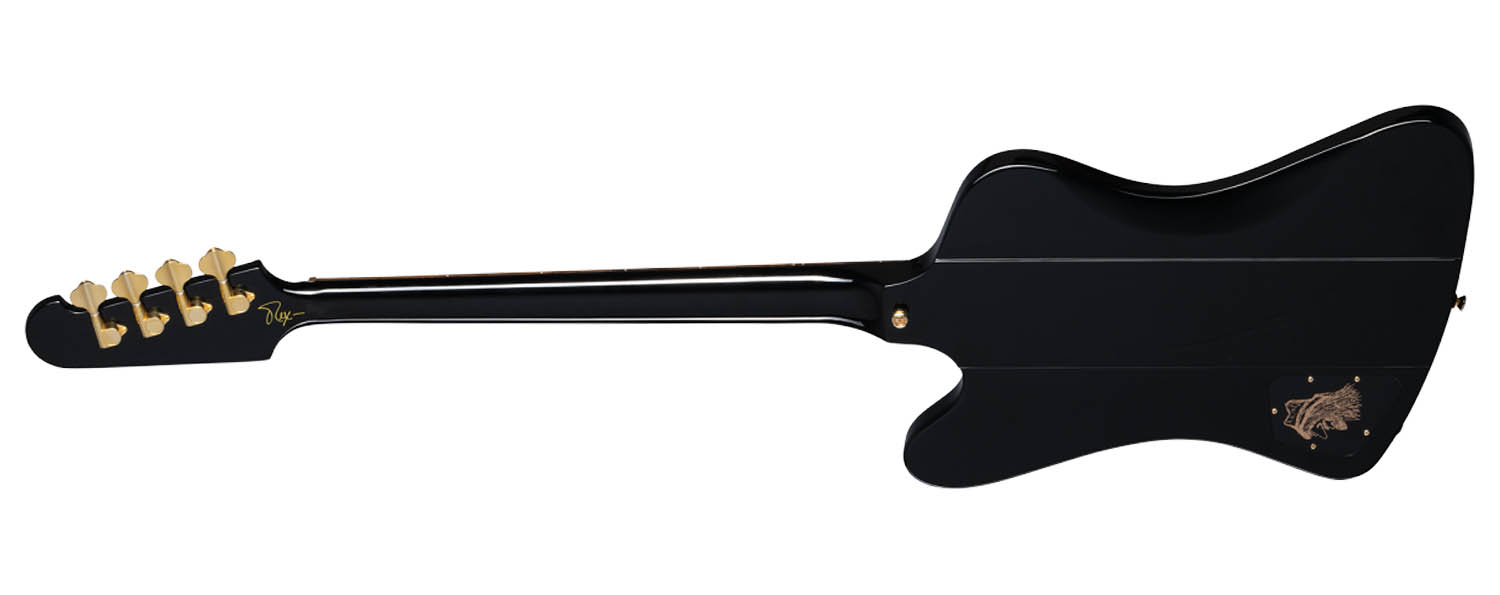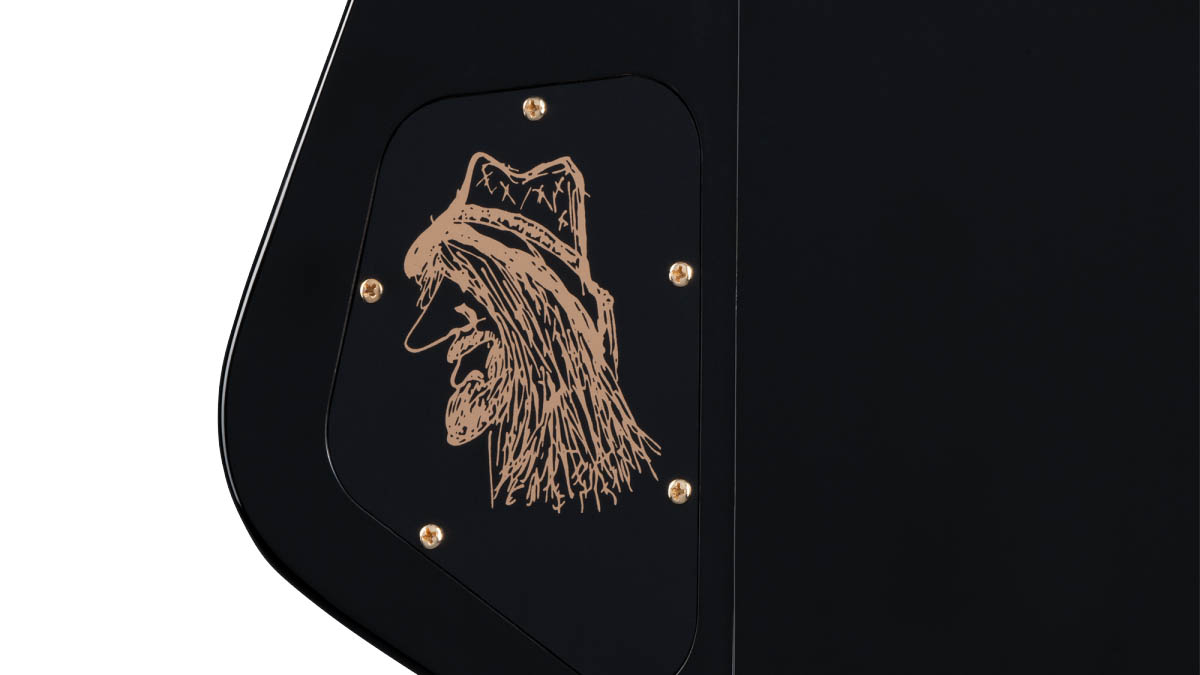
NAMM 2024: Epiphone has launched a signature Thunderbird bass guitar for Pantera and Down bassist Rex Brown, and it shares much of the same classy aesthetic of his Gibson signature model – albeit with a more accessible price tag.
Not that Brown’s new Epiphone four-string is cheap. Like the Gibson-owned brand’s recent signature guitars for Kirk Hammett and Joe Bonamassa, the Thunderbird is positioned at the very top-tier of Epiphone’s Chinese-made range, offering serious competition for the entry-level USA models of its parent company.
Finished in Ebony, with gold hardware and pickguard – plus gold signature details such as the obligatory back-of-the-headstock signature and the bonus cartoon doodle on the control plate on the instrument’s rear – this is quite the looker.
In every sense this looks a heavyweight, with its solid mahogany construction, its through-neck build, and a pair of Epiphone ProBucker 760 Bass pickups to bring the thunder. Those pickups are nickel-covered which makes a nice contrast to the gold on the hardware. After all, playing metal is a blue-collar occupation; you don’t want to overdo the bling.
You don’t want to mess with the classics either, and pleasingly Brown has not tried to reinvent the wheel – the steel? – with this one.


The scale length is 34”. As with most of the other instruments on the current Epiphone line, the fingerboard comprises Indian laurel, and it has a 12.6” radius on a C-profile neck for a comfortable feel. That neck is a 9-ply construction of mahogany and walnut.
There are 20 medium jumbo frets, dot inlays. Like its Gibson-made sibling, Brown’s Epiphone Thunderbird has a set of gold die-cast tuners with mini-clover buttons, and here is where we can compare and contrast with the Gibson model.

If you can spring for the $2,799 Gibson you’ll get Hipshot hardware, with a Drop D Xtender fitted to the bridge. This Epiphone version has a Babicz FCH 3-Point bridge Epiphone string spacing. You also have switchable passive or active sounds from the Gibson's Rexbucker Thunderbird pickup pairing, whereas the Epiphone is wholly passive.
That is not to say it it won't be versatile. There should be plenty of range in this bass’s tone, with an individual volume control for each pickup allowing players to dial in a mix of both pickups. We like the knurled gold dials. A master tone control serves both pickups.
A rosewood fingerboard and a nitro gloss finish are other upgrades should you go Gibson over Epiphone, but at £1,399/$1,299, Brown’s Epiphone model presents a lot of bass for the money.
It comes in hardshell guitar case and is available to order now. See Epiphone for more details.







